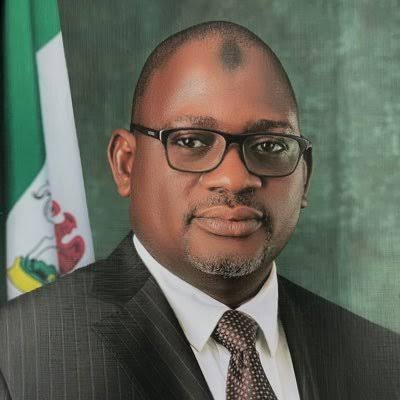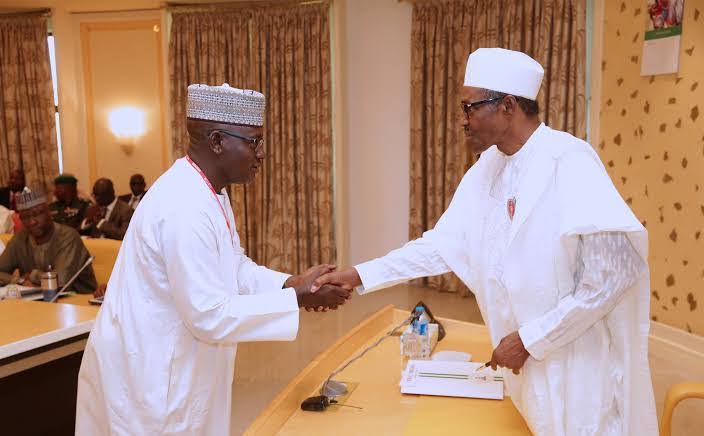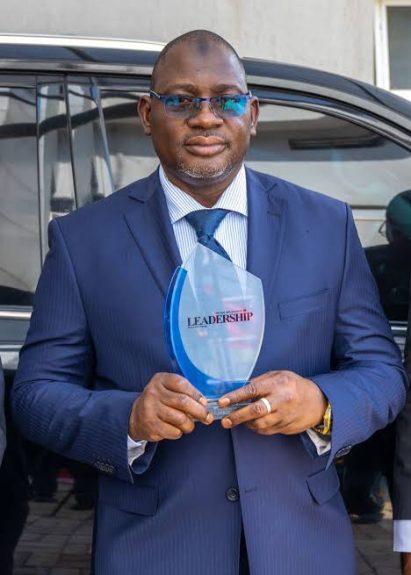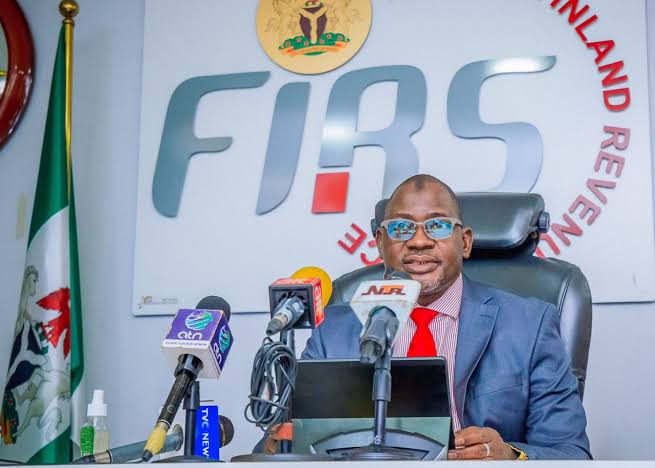
Pius Nsabe
When Muhammad Mamman Nami walked into the Federal Inland Revenue Service headquarters in December 2019, he carried not just the weight of his new title as Executive Chairman but also the burden of transforming an institution many Nigerians associated with bureaucracy, inefficiency, and poor compliance. To some, he was an unknown technocrat from Niger State; to others, he was the quiet tax strategist with a reputation for precision, discipline, and reform. Yet, in just a few years, Nami would etch his name into Nigeria’s fiscal history as the man who pushed tax revenue past record-breaking milestones, even in the face of global economic headwinds.
Born in the modest town of Nami village, Agaie Local Government Area of Niger State on February 7, 1968, his journey did not follow the path of privilege. He built his career brick by brick, mastering numbers and systems until he became one of Nigeria’s most respected tax administrators. His rise is a story of grit, competence, and vision, shaped by a belief that tax, not oil, must form the backbone of Nigeria’s future.
Nami’s early years were steeped in the values of hard work and community service. He studied sociology at Bayero University, Kano, and later trained as an accountant, qualifying as a chartered accountant with the Association of National Accountants of Nigeria. Over time, he expanded his expertise through certifications in audit, risk management, and executive programs at global institutions like Harvard Kennedy School, London School of Economics, and the University of Groningen. These credentials equipped him with a unique blend of local understanding and global perspective—qualities that defined his leadership style.
Before stepping onto the national stage, Nami carved a niche in the private sector. As a tax consultant and the founder of Manam Professional Services, he spent two decades advising multinationals and local firms on compliance, auditing, and strategy. His reputation for integrity and results made him a trusted name in Nigeria’s business circles. He also served as a member of the Presidential Committee on Audit of Recovered Stolen Assets (PARESA), where he demonstrated his commitment to accountability and transparency.
His appointment as FIRS boss in 2019 was both an opportunity and a test. Nigeria was grappling with declining oil revenues, rising debt, and sluggish tax compliance. Public confidence in the tax system was low. Critics questioned whether Nami could lead the agency out of the shadows of inefficiency. Yet, he embraced the challenge with quiet determination, declaring that the era of complacency was over.

Under his stewardship, the FIRS was overhauled. He spearheaded the automation of tax processes through the TaxPro Max platform, simplifying filing and payment for millions of Nigerians. He strengthened enforcement mechanisms while building a culture of voluntary compliance. His reforms were not without resistance—many powerful interests resisted tighter oversight—but Nami’s strategy was clear: broaden the tax net, plug leakages, and align Nigeria’s system with global best practices.
The results were staggering. By 2021, the FIRS had collected ₦6.4 trillion in tax revenue, its highest ever at the time. In 2022, the agency surpassed expectations again, raking in ₦10.1 trillion despite a volatile global economy. These figures were not just numbers; they represented hospitals, schools, and infrastructure projects that could only be funded when Nigeria reduced its dependence on oil. Nami was proving that effective tax administration was central to national development.
Colleagues and observers often described him as a man of few words but deep conviction. He avoided the flamboyance of many public officials, choosing instead to let data and performance speak. Yet, behind the reserved demeanor was a reformer who pushed his staff to think beyond traditional methods. He restructured FIRS into functional groups, encouraged training, and built a culture of accountability within the service. His leadership reflected his belief that an institution is only as strong as the people who drive it.

Nami’s tenure was not without controversy. Some critics accused him of being too rigid, others of focusing heavily on targets. However, even detractors acknowledged that his approach placed Nigeria on a firmer fiscal footing. He insisted that Nigeria must move away from its dependence on oil if it wanted sustainable growth, and his reforms were designed to prepare the economy for that inevitable transition.
Beyond his role at FIRS, Nami has always been deeply connected to his roots. He invested in education and youth empowerment initiatives in Niger State, supporting programs that created opportunities for rural communities. Friends often note that his humility never left him despite his rise to prominence; he still maintained the simplicity of a village son even as he mingled with presidents and global leaders.
When he handed over in 2023, Nami left behind a legacy that continues to shape Nigeria’s tax landscape. The systems he put in place—automation, compliance enforcement, and institutional reforms—remain foundational pillars for the country’s revenue mobilization strategy. More importantly, he shifted public discourse: taxes were no longer just a burden but a civic duty tied to Nigeria’s collective progress.
Muhammad Mamman Nami’s story is more than a tale of numbers and revenue charts. It is the story of how a man from a modest background redefined an institution and laid down a vision for Nigeria’s fiscal independence. In a country often bogged down by oil politics and rent-seeking culture, he reminded Nigerians that true national wealth is built when citizens and institutions take responsibility.

Today, as Nigeria continues its search for economic stability, the echoes of Nami’s reforms linger. His career stands as proof that leadership anchored on competence, integrity, and vision can transform even the most complex systems.
It is no surprise, therefore, that this quintessential accountant and tax reformer has also earned a cherished place in the heart of his people. In recognition of his contributions not only to Nigeria’s fiscal rebirth but also to the Nupe Kingdom, His Royal Highness, Etsu Nupe, Alhaji Yahaya Abubakar, CFR, will on Saturday, August 30, 2025, turban him as the Mazhi Raban Nupe at the Etsu Nupe’s Palace in Bida, Niger State. The ceremony, billed for 10 am, is more than a traditional honor; it is a celebration of a son who rose from the quiet lanes of Nami village to national prominence, and who now returns to his roots crowned not just with a title, but with the blessings of a grateful people.
